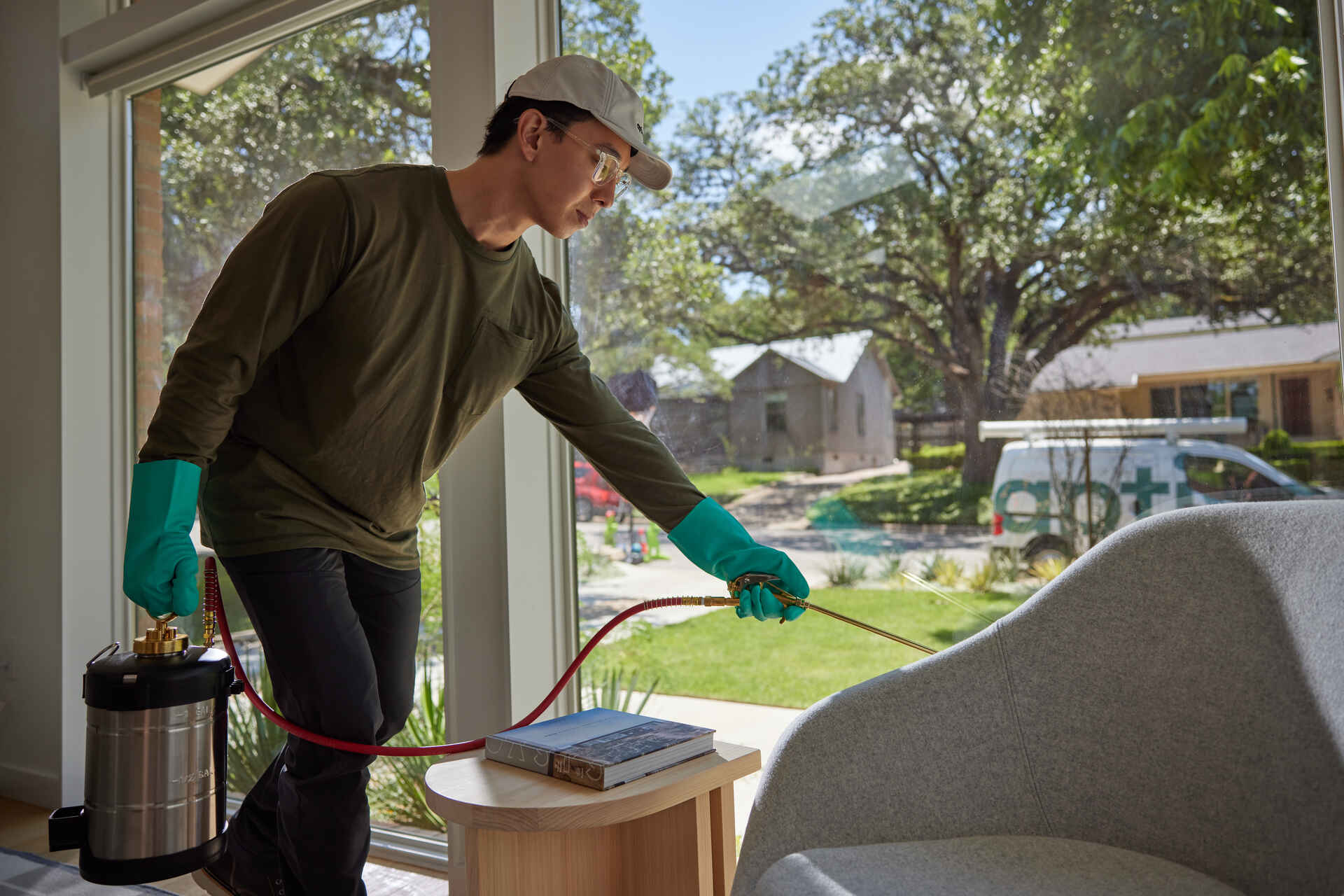Reliable A1 Bed Bug Treatment in Charlotte - Safe and Proven Approaches
Reliable A1 Bed Bug Treatment in Charlotte - Safe and Proven Approaches
Blog Article
Bed Bug Therapy Break Down: Contrasting Chemical Vs. Non-Chemical Solutions
In the world of parasite control, particularly when managing the relentless concern of bed bugs, the option between chemical and non-chemical therapy remedies can be a pivotal one. Both strategies offer unique benefits and downsides, affecting factors such as effectiveness, security considerations, and overall expense. By checking out the nuanced information of each approach, a clearer understanding of which course to pursue in attending to a bed bug invasion can be attained.
Efficiency of Chemical Treatments
Chemical therapies for bed insect problems have actually been commonly acknowledged for their powerful and fast efficacy in eliminating these bugs. When considering the effectiveness of chemical treatments, it is critical to recognize that they can provide a quick and extensive remedy to a bed insect problem. Specialist pest control specialists typically depend on insecticides to target bed insects at different stages of their life cycle, consisting of adults, eggs, and nymphs. These chemicals typically function by interfering with the bed insects' nerve system, causing paralysis and eventual death.
In addition, chemical therapies have the benefit of using residual impacts, indicating that they can remain to eliminate bed bugs even after the initial application. This recurring action is particularly advantageous in combating any prospective re-infestations. Additionally, the fast activity of chemical treatments can bring alleviation to individuals encountering severe bed pest problems, permitting them to restore control of their living areas promptly.
Safety And Security Worry About Chemical Solutions
One important aspect that requires careful consideration when utilizing chemical remedies for bed bug therapy is making sure the security of owners and the environment. Exposure to particular chemicals utilized in bed pest treatments can lead to breathing issues, skin irritation, or various other adverse responses, especially in people with pre-existing conditions or level of sensitivities.
Moreover, the ecological influence of chemical services is one more substantial factor to consider. Some chemicals used in bed bug treatments might be hazardous to valuable insects, wildlife, and environments if they seep into the dirt or water systems. It is vital to utilize chemical treatments carefully, following security standards, and considering much less harmful options to minimize these threats and guarantee the effective and secure administration of bed pest infestations.
Benefits of Non-Chemical Approaches
Taking into consideration the potential safety and security concerns and environmental influence linked with chemical remedies for bed insect treatment, discovering non-chemical strategies presents a promising choice with a number of distinctive advantages. Non-chemical treatments read review are environmentally friendly, as they do not contribute to air or water air pollution, making them a lasting choice for parasite control.
Furthermore, non-chemical remedies can be effective in targeting bed pests, including hard-to-reach areas where chemical treatments might not penetrate - A1 exterminators charlotte nc. Techniques such as warmth treatment, vacuuming, heavy steam cleaning, and cushion coverings provide extensive removal without the usage of unsafe chemicals.
Limitations of Non-Chemical Treatments

Additionally, non-chemical therapies typically need multiple applications to accomplish effective eradication. This can be lengthy and might not always guarantee complete elimination of all bed pests and their eggs, particularly in hard-to-reach or surprise locations.
Additionally, the success of non-chemical therapies greatly depends on proper application and thoroughness, which can be testing for people without professional expertise. Insufficient application of non-chemical techniques may lead to insufficient eradication, causing relentless infestations and the demand for added treatments.
As a result, while non-chemical therapies have their benefits, it is important to recognize these limitations and consider them when identifying the most efficient technique for managing bed bug infestations.
Cost Comparison: Chemical Vs. Non-Chemical Options
Offered the constraints linked with non-chemical treatments, a crucial aspect to review in the context of bed insect management is the price contrast between chemical and non-chemical alternatives. In contrast, non-chemical therapies like warmth therapy or vapor can be a lot more costly, with prices ranging from $1,000 to $6,000 for an entire home. While the initial price of chemical therapies might seem reduced, numerous therapies may be needed to totally get rid of the problem, potentially enhancing the overall expense.
Conclusion

Considering the prospective safety worries and environmental impact associated with chemical options for bed pest treatment, checking out non-chemical techniques presents an appealing choice with several unique advantages.Offered the restrictions linked with non-chemical therapies, a necessary facet to assess in the context of bed pest management is the expense contrast in between chemical and non-chemical alternatives. In comparison, non-chemical treatments like warm therapy or vapor can be more costly, with prices ranging from $1,000 to $6,000 for an entire home. While the preliminary expense of chemical therapies might seem lower, numerous therapies might be required to fully eradicate the infestation, potentially increasing the overall price.In final thought, when comparing chemical and non-chemical bed insect treatment options, it is essential to think about performance, safety and security, advantages, constraints, and price.
Report this page